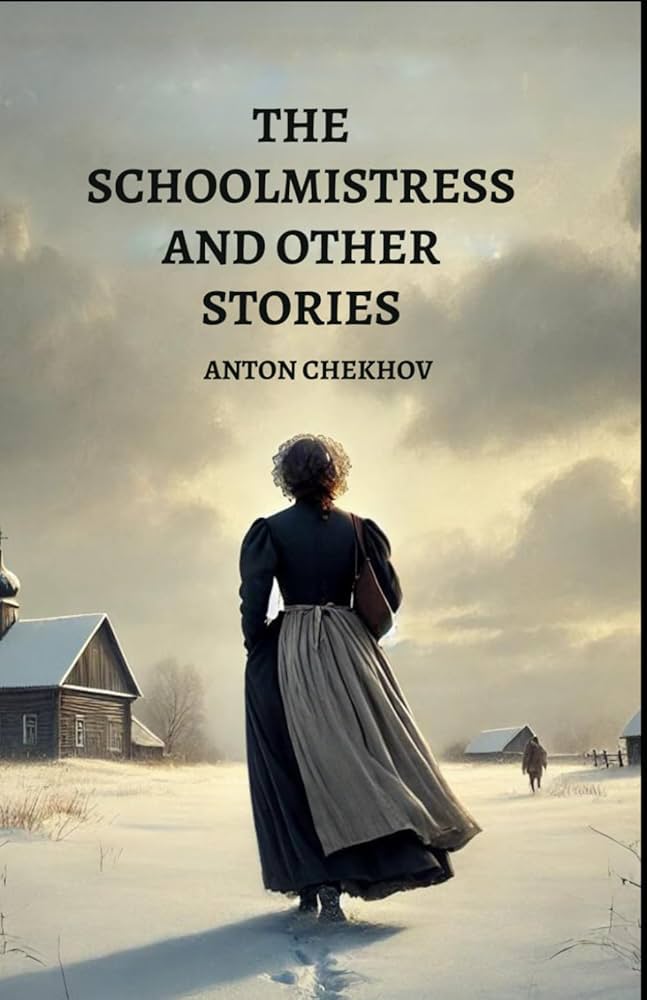A LADY’S STORY
byA Lady’s Story opens with a recollection not just of a journey, but of an emotional turning point. Natalya Vladimirovna, looking back on the day she and Pyotr Sergeyitch rode through the countryside, remembers the storm not as a threat, but as a spark that set something quietly powerful in motion. The landscape shimmered in the tension between light and rain, and the thrill of nature seemed to free them both from social constraints. Pyotr’s playful remarks about castles and lightning only thinly veiled his nervous anticipation, and when he finally confessed his affection, it was less about changing her life and more about admitting his own truth. His declaration wasn’t a demand—it was a gift wrapped in vulnerability. The moment held weight for Natalya, even though she offered no promises, and the simplicity of his request planted something in her that would take years to understand.
What followed was not a romance in the traditional sense, but a slow unraveling of emotion constrained by class, habit, and inner doubt. Natalya, educated and deeply introspective, admired Pyotr’s honesty, but could not bring herself to see beyond his provincial mannerisms. In town, where social roles are sharply defined, their dynamic shifted. His straightforward affection began to seem awkward rather than charming, and she retreated behind politeness and distance. Over time, they drifted, their contact limited to occasional pleasantries. The memory of that stormy evening remained vivid for her, however—an isolated pocket of sincerity in a life increasingly guided by duty and inertia. Pyotr’s words echoed in quiet moments, not as regrets, but as unanswered questions about courage and timing.
Years later, their reunion is marked by contrast. He arrives changed—not broken, but dulled, his enthusiasm replaced by a kind of civil fatigue. The spark that once warmed his eyes has been subdued by time and disappointment, and Natalya sees in him a mirror of her own resignation. Their conversation is cordial but charged with unspoken sorrow. She realizes, as they speak of inconsequential things, that the deeper silence is the more honest dialogue. It is not that the love they once almost shared was great, but that it represented a version of themselves they never allowed to flourish. Pyotr’s visit is less a reconnection and more a quiet eulogy for a relationship that never learned how to live.
Natalya’s reflection turns inward as she watches him go. She recognizes that her life, filled with intellectual pursuits and measured decisions, lacked something vital—a willingness to embrace uncertainty. In remembering Pyotr, she does not just mourn the loss of love, but of passion, spontaneity, and risk. Her tears are not merely for him, but for the years lived with restraint, for the books read instead of adventures taken, for the silence she clung to in moments that begged for speech. As she stands alone once more, the past feels closer than ever, not as a story to be retold, but as a truth she has only just begun to understand.
The story ends not in tragedy, but in soft recognition. Both Natalya and Pyotr continue their lives, perhaps unchanged in action but deeply altered in awareness. Their story is not one of failed romance, but of two souls who met at the edge of something beautiful and, out of fear or circumstance, never stepped forward. It’s a tale that asks its readers to reflect on the choices they avoid, the feelings they bury, and the courage it takes not to love, but to admit that love matters. Through this quiet, personal reckoning, Chekhov offers a mirror to every reader who has hesitated at the threshold of connection, and who wonders what might have happened if they had chosen differently.

